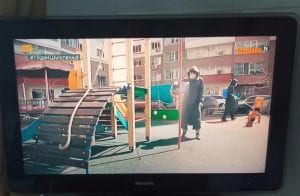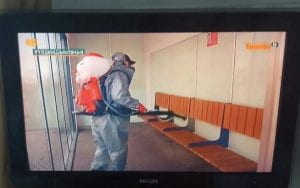———————————————————————————————–Diary Project Nur-Sultan [2] >>
14 April 2020
Liberta/ Свобода. Freedom. How much meaning do we put in this short yet beautiful word? I asked myself this question while listening to one of my favorite songs by the famous Italian duo Al Bano and Romina Power while spending another day at home isolated from the outside world. During the history of humankind people fought, died, and lived for freedom. There is a dictionary definition, of course. The Cambridge Dictionary defines freedom as: “the condition or right of being able or allowed to do, say, think, etc. whatever you want to, without being controlled or limited; a right to act in the way you think you should; the state of not being in prison.” My own personal definition of freedom is of an idea, a state of mind that motivates people to live, create, discover, and invent. I feel like freedom is the greatest value in my life. I also have some more practical definitions of freedom: the ability to regulate the course of my daily routine, the opportunity to decide for myself my career route, my place of residence, and the ability to determine my life path in general, to be able to make choices for my future.
Since COVID-19 has hit as a global crisis, people around the world have been experiencing disruptions of freedom. Governmental responses to COVID-19 restrict the freedom of movement— one of the most fundamental freedoms—and the freedom to live a full life. The pandemic forced governments to impose lockdown and apply restrictions on movement.
Since the WHO declared that the COVID-19 outbreak is a pandemic on March 11, 2020, the situation in Kazakhstan changed rapidly. On March 13, the official media confirmed the first two cases of COVID-19 in the country. On March 15, the government announced that the state of emergency in the country would last from March 16 to April 15. The government ordered the shutdown of public venues, such as malls, cinemas, and theatres, and the cancellation of mass celebrations. It also sealed off the borders to all incoming and outgoing travel. However, at that stage, the state of emergency did not yet have a large impact on many people’s daily lives.

Although at this point, I had a very frustrating moment realizing that I had to cancel a few long-planned trips, but I understood then that those plans could be postponed and accomplished later in the year after COVID-19 is defeated and that I didn’t need to compromise my safety. I did not let the irritation last longer than a couple of days. Other changes affected my life in small ways: on March 13 Nazarbayev University announced a switch to online teaching, so I moved to work from home. On March 19, the government announced a quarantine in two main cities: the capital city of Nur-Sultan, where I live, and Almaty. Since my work and life are both based in Nur-Sultan, sealing the city off did not necessarily change my life either.

Yet, the consequences of these last two measures, which many would refer to as “draconian,” were enormous for other people. Some people were cut off from their families in other cities and countries. Some of my international colleagues from Nazarbayev University do not know when they will be able to meet their loved ones in their home countries.
Related:
Diary Project Bulawayo [1] :: Nomathemba Sibanda (Zimbabwe)
Diary Project Harare [1] :: Constance Myambo (Zimbabwe)
Diary Project Kolkata [1] :: Ritam Sengupta (India)
Diary Project Taipei [1] :: Hsin-Hui Lin (Taiwan)
Diary Project Ponta Grossa [1] :: Lucas Erichsen (Brazil)
Diana Kopbayeva works in the Department of History, Philosophy and Religious Studies, at Nazarbayev University, Nur-Sultan, Kazakhstan. She holds a Ph.D. in sociology from Newcastle University, UK (2019). Her doctoral project examined the current discourses of the nation in Kazakhstan (2013-2017) and focused on very recent initiatives and state programs, including the new notion of the Eternal Nation. Her research interests include nationalism, nation-building, discourses of the nation in post-Soviet territory.
* * *
The Teach311 + COVID-19 Collective began in 2011 as a joint project of the Forum for the History of Science in Asia and the Society for the History of Technology Asia Network and is currently expanded in collaboration with the Max Planck Institute for the History of Science(Artifacts, Action, Knowledge) and Nanyang Technological University-Singapore.
![[Teach311 + COVID-19] Collective](https://blogs.ntu.edu.sg/teach311/files/2020/04/Banner.jpg)